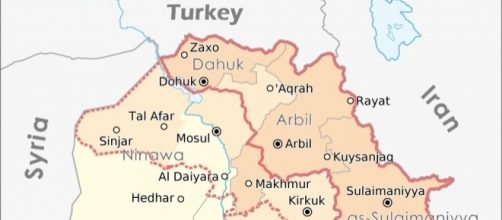On Monday, the Kurdish region of Iraq held their independence referendum, which was announced back in June and organized by Kurdish authorities. The Kurdish region has been held a high degree of autonomy for years, and their decision to hold a vote has been one that has shaken the region and led to threats and international warnings.
Referendum sees high turnout
The voting saw a high turnout that was estimated to be 72% according to the region's election commission. It delivered a resounding “yes” vote, as the Kurdish Rudaw website showed that over 90% voted for independence.
The independence referendum is not a binding vote, so technically it means nothing and is just a show of support. However, it designates the head of the Kurdish Regional Government (KRG), Massoud Barzani, a mandate to negotiate the succession of the area with Iraq and neighboring countries.
When the Ottoman Empire collapsed over the last 19th and early 20th centuries, the Iraqi Kurds were the largest ethnic group that were left stateless. That is why the vote is being held, along with such high turnout, despite all of the threats and warning not to hold the referendum.
Regional and international warnings
Iraq's government has been putting pressure on the Kurdish region not to hold this referendum, as Iraq does not want to lose its oil-rich region and northern territory.
Baghdad has already asked other countries to stop direct oil trading with the Kurds and had demanded control of all airports and border posts in the region. Prime Minister Haider al-Abadi has also called the vote “unconstitutional.”
Meanwhile, neighboring countries with largest Kurdish populations like Iran, Turkey, and Syria have been making threats. With an estimated 30 million ethnic Kurds in scattered among Iraq and those four countries, they do not want their separatism to spread to their own Kurdish populations.
Top Turkish officials have already said their country will not recognize the referendum and that they would be in talks with Iraq's central government about the issue. Turkey has been fighting Kurdish groups they deem as rebels in the southern and eastern parts of their country for decades.
There have also been international warnings, including from the US State Department. The referendum was held in areas that are disputed between the Kurdish regional government and Iraq, which led the State Department this issue this warning: “holding the referendum in disputed areas is is particularly provocative and destabilizing.” Following the vote, they said they were “deeply disappointed” it went through.


